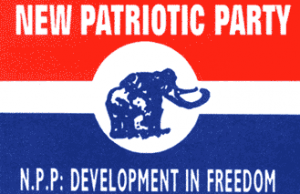Former NPP MMDCEs call for cool heads in the party
 Some former Metropolitan, Municipal and District Chief Executives (MMDCEs) in the New Patriotic Party (NPP) administration have called for peace, order and unity in the party.
Some former Metropolitan, Municipal and District Chief Executives (MMDCEs) in the New Patriotic Party (NPP) administration have called for peace, order and unity in the party.
These they said are the necessary ingredients to wrest power from the ruling National Democratic Congress in 2016.
The former MMDCEs drawn from the Northern, Upper East and the Upper West Regions made the call in a statement issued in Tamale on current happenings in the party.
Alhaji Iddrisu Adam, a former Tamale Metropolitan Chief Executive who read the statement signed by Mr Justin Bayala Dakura, former Jirapa District Chief Executive and Mr Abdul-Rahman Gumah, former Bawku Municipal Chief Executive, asked the indefinitely suspended Chairman of the NPP Mr Paul Afoko, to follow the laid down channels of the party to seek redress.
“We call on Paul Afoko to remain calm and accept the decisions taken by the Executive Committee of the party,” the statement said.
The MMDCEs cautioned the public to refrain from linking the current wrangling in the NPP to ethnic or sectional issues.
The statement said: “People have wrongly and openly declared that Mr Paul Afoko is involved in these crises because he is a Northerner, this is not true.”
The MMDCEs said Ghanaians must not be swayed by propagandist comments that the NPP is an Akan party. They said the defunct Northern People’s Party (NPP) was the formational pillar in the “UP tradition” and its associate parties and it is therefore erroneous to assume that the NPP is an Akan party.
They cited a number of people from Northern descent who had served the NPP creditably including S. D Dombo, Tolon-Naa Alhaji Yakubu-Tali, Alhaji Malik Alhassan Yakubu, Salifu Bawah Dykah, Alhaji Aliu Mahama and C. K. Tedam.
The statement urged Mr Afoko to emulate their leadership qualities for the interest of the party.
The former appointees who expressed optimism in the chances of the NPP winning the 2016 general election urged loyalists of the party not to use the media to address their challenges but to follow due process.
Source: GNA
